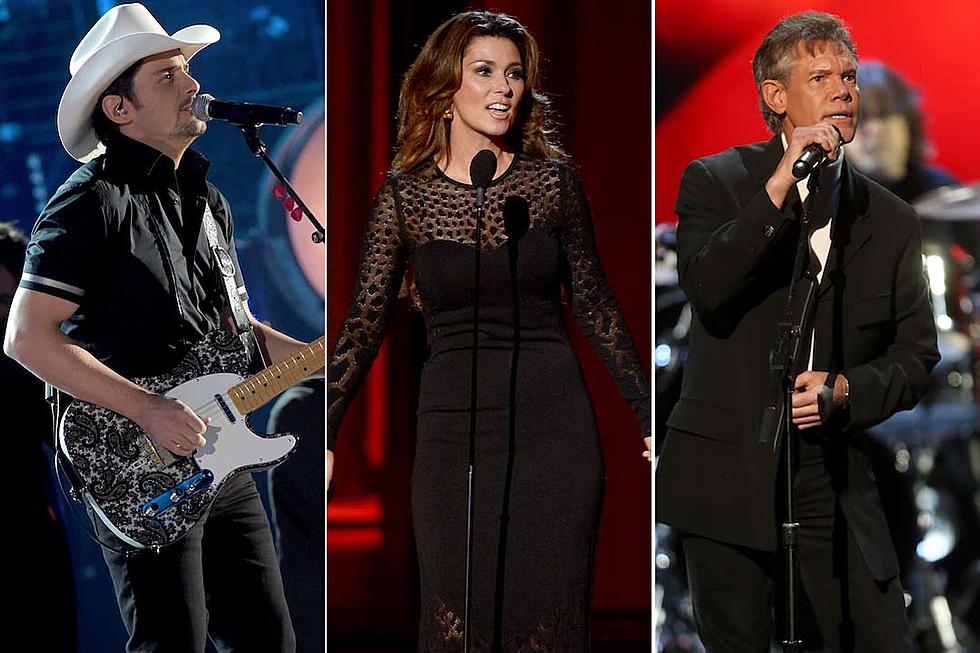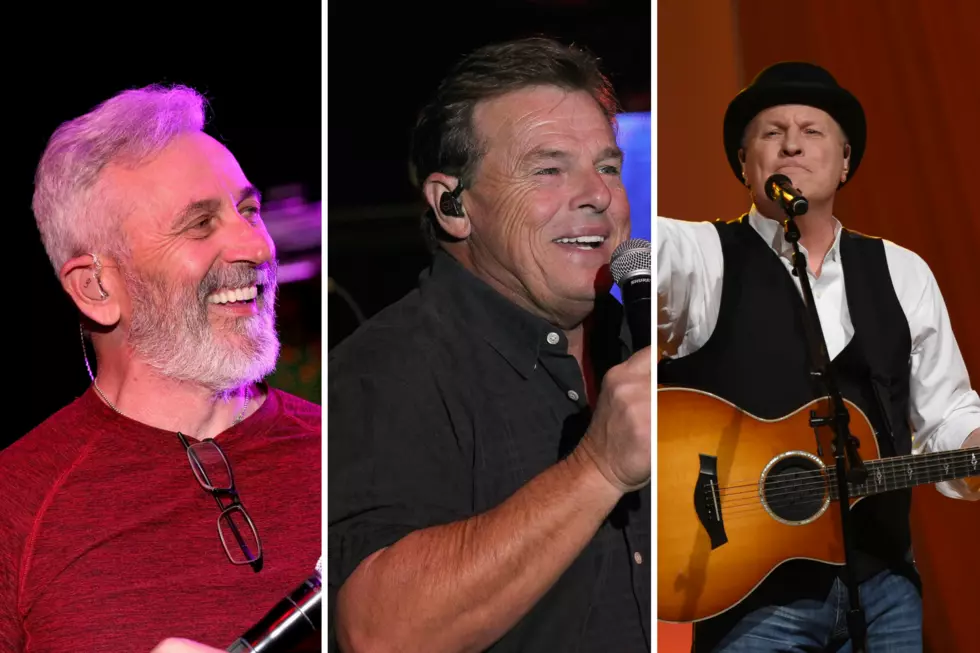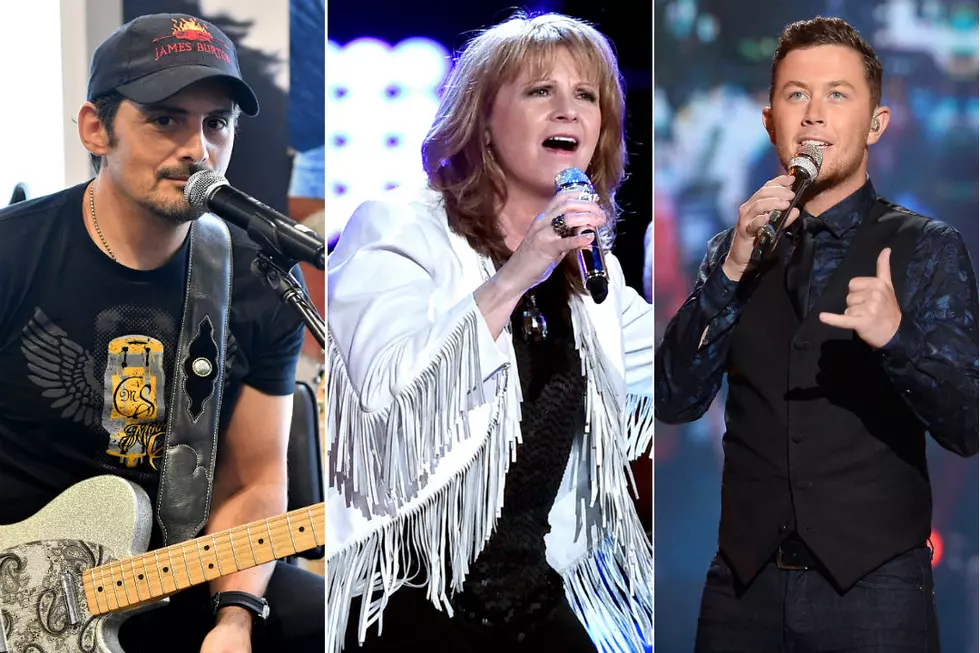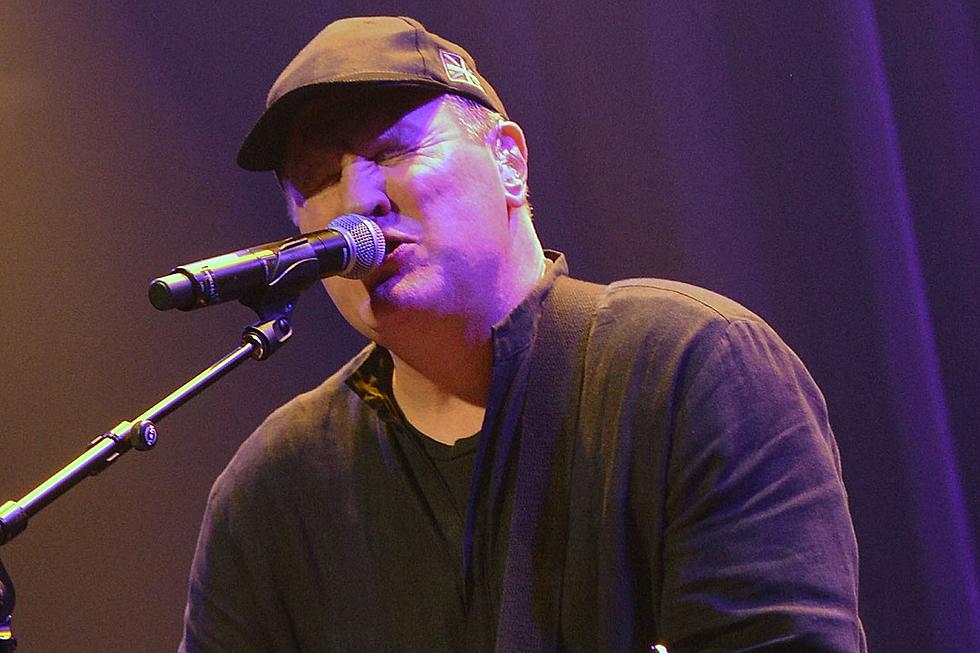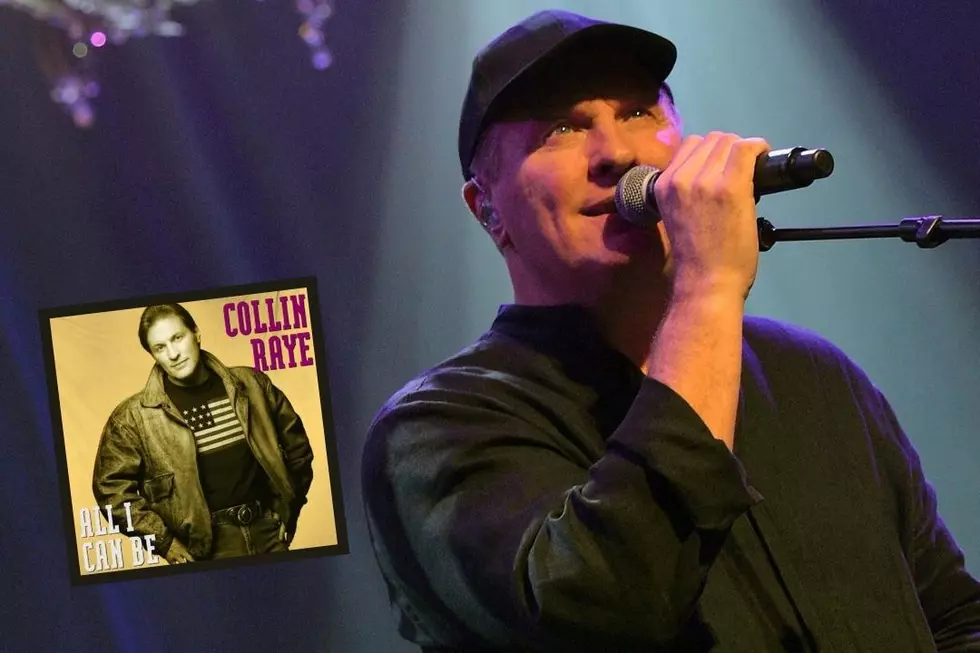
Story Behind the Song: How Collin Raye’s Heartfelt ‘Love Me’ Became a Timeless Hit
Collin Raye's "Love, Me" debuted on the Billboard Hot Country Songs and Country Airplay charts on Oct. 19, 1991, and in less than three months, it peaked at No. 1 for three consecutive weeks from Jan. 4 to Jan. 18, 1992. A chart run of this speed and magnitude was something Raye did not see coming, especially as a wide-eyed new artist who had just emerged on the country music scene with his Epic Records debut album in August 1991.
"[All I Can Be] was my very first album. That was my very first try at it. As time went on where I could pretty much calculate a hit, but on that first album, I wasn't sure. I was like, 'Is it too deep? Is it too slow? Is it too sad?'" Raye tells The Boot in a recent interview.
"My first single was a song Harlan Howard wrote, 'All I Can Be is a Sweet Memory,' and that had done pretty well on the chart, but it went to No. 22, and the music video for that song went to No. 1, so we felt pretty good about our chances. But again, when your first song stops at 22, you think, 'Maybe this isn't going to work,'" admits Raye. "But the fact that the video went No. 1, we were hopeful, and when we released 'Love, Me,' it flew up the chart."
The song's chart run was a surprise to Raye and his team. It was a slow ballad, not an uptempo high-energy number, which radio programmers typically prefer. After all, 1991 saw Diamond Rio's "Meet In The Middle," Alan Jackson's "Don't Rock the Jukebox" and Brooks and Dunn's "Brand New Man" fly to the top of the charts, and they were all upbeat songs. While Raye and Epic Records were expecting "Love, Me" to have a decent chart run, they weren't ready for its rapid ascend to the prized No. 1 position.
"It was jumping 12 to 15 spots each week, to where the first single would stay two weeks in the same spot and then it would move two spots, or three, and then it might stay up there," he recollects. "Literally three weeks in after the release of 'Love, Me,' we knew we were going to have a hit. But I had no idea it was going to go No. 1. And the thing you never anticipate is that it's a song that is still this popular 31 years later. When I play it live, everybody sings along across different generations and age groups. That's something you never anticipate."
The massive success of "Love, Me" was something both songwriters did not see coming as well, as co-writer Skip Ewing recalls.
"I played it for my producer at the time with MCA and he told me it was a terrible song that would never work on radio and that I should consider trying to write radio hits, not songs like 'Love, Me'," shares Ewing, who was signed to MCA Nashville as an artist then. Thankfully, his publishing company thought otherwise and began pitching the sentimental tune to other artists.
That’s when it found its way to music publishing veteran Troy Tomlinson, who later pitched it to Raye and Opryland Music Group’s Jerry Fuller just as they were concluding their meeting.
"Jerry and I were getting up to leave to get to another meeting and Troy said, 'You know what? There's one more song I want to play you. I wasn't going to, but I got a good feeling about it," Raye recollects. "You know the old saying [of] a 'top drawer song' versus a 'bottom drawer song'? Well, he literally reached in his top drawer of his desk, pulled out a cassette and said, 'This is a song Skip Ewing and Max T. Barnes just wrote and you might like it." He played it, and of course, Skip Ewing sounded wonderful on the demo, and by the time we got to the chorus, Jerry and I looked at each other and thought, 'Wow, that's pretty good!'"
"Love, Me" is very much a real-life inspired song. Ewing, actively pursuing an artist career, was gearing up to leave Nashville for a tour with The Judds when his then-girlfriend passed him a personal card.
"She didn't sign it with her name; she wrote: 'Love, Me.' Max T. Barnes was playing electric guitar with me at the time, and I remember telling him that it struck me that many people would do the same—sign a card to someone without using their name, just 'Love, Me.' That's when both talented songsmiths discussed the concept, ideated a chorus, story, and soon after, the completed soon-to-be hit.
Over three decades later, Raye continues to perform “Love, Me” out on the road. How could he not? After all, it was the pivotal rocket that catapulted his career and the song he’s become synonymous with.
“I always close my set with that one because that’s my signature song,” Raye shares proudly. “I’m so thankful for all my big hits — ‘That’s My Story,’ ‘Little Rock,’ ‘One Boy One Girl,’ ‘I Think About You,’ ‘Little Red Rodeo’ — we had a bunch of them and I’m thankful for each one. But “Love, Me” was very special because it was the first really big one. Because the song is about a signature, then it’s a perfect signature song. [laughs] You know what I mean? It’s a great way to say goodnight. ‘Between now and then / Until we meet again, I’ll be loving you / Love, Me’.”
Like any authentic No. 1 song, this enduring and heartfelt tear-jerker has transcended generations of country fans, with both young and old knowing its lyrics by heart from front to back. Raye recalls playing a recent concert where half the crowd was under 25 and everyone was singing along to it, including "young people who weren't even born [when the song came out]."
"I think the reason it's stood the test of time and will continue to stand the test of time is because of its theme and message. It's about eternal love beyond the grave and reuniting in heaven after their life is over. Again, that is such a comforting truth people need to be reminded of," the '90s country hitmaker says. "I think that makes people feel. Because that theme will never go out of style and because that hope will never go out of style, I don't think that song will ever go out of style."
Ewing echoes this sentiment.
"Perhaps it goes back to the intimacy of knowing that the person to whom you're writing the letter will know who it is when you only write "Love, Me" instead of your name," he notes. Ewing further attributes the song's success to the universal desire to forge and maintain eternal bonds with those we love and cherish, even beyond the grave.
“I believe that connecting the family in the song is something everyone understands and many people want — to remain lovingly connected even once they’re separated. Everyone wants to be gifted and reassured of their partner’s love and devotion. So, too, all of our hearts treasure, honor, and respect the effort necessary to act lovingly, and remain devoted to our true loves even when we’re apart,” he adds.
"Love, Me" is also more than just a radio success or single heard over the airwaves. On top of being one of the most globally-recognizable and beloved country songs, it has been a staple at weddings and, moreso, at funerals for the last three decades.
"The true legacy of this song is the fact that so many people have included the lyrics to this song in extreme emotional situations in their lives," notes Raye. He remembers being blown away by the number of people who started sharing deeply personal funeral-related stories with him in the early '90s. Some even engraved the chorus or full lyrics on their loved one's tombstones.
"Just the fact that that song meant so much to that family as a tribute to the person who had passed away, that's crazy and just made me feel so good about it then," the 10-time Male Vocalist of the Year nominee notes. "But what's so wild about it is I still hear stories like that. That song is 31 years old. Not nearly as often, of course, but it still happens. It's amazing."
With 16 No. 1 hits under his belt and 13 albums released thus far, Raye, now 62, is grateful for the life-changing impact his first chart-topper had on his career and the doors it opened for the then-newcomer.
"There are certain songs of mine that I feel pretty proud of as far as what I did vocally. But on 'Love, Me,' I think you could've tried it out with 50 different singers, and they could've done an equally good job on this song, and it would've been a huge hit for them as well because it's just a great song," reflects Raye.
"I will always be indebted to Troy Tomlinson for letting us have that one and, of course, to Skip and Max for writing such a magnificent song. I'm just a lucky, blessed, and fortunate guy that had the honor of singing that song."
Top 10 Country Albums of the 1990s
More From KXRB
